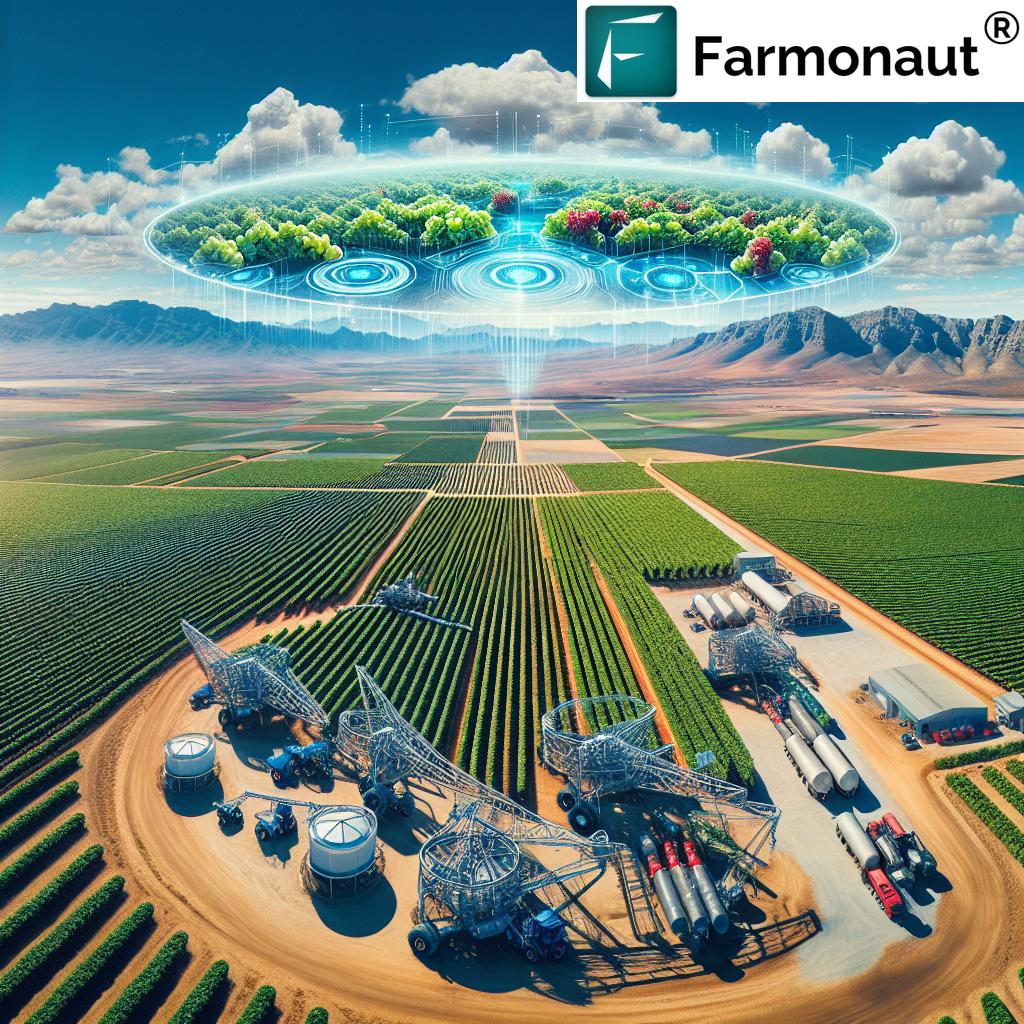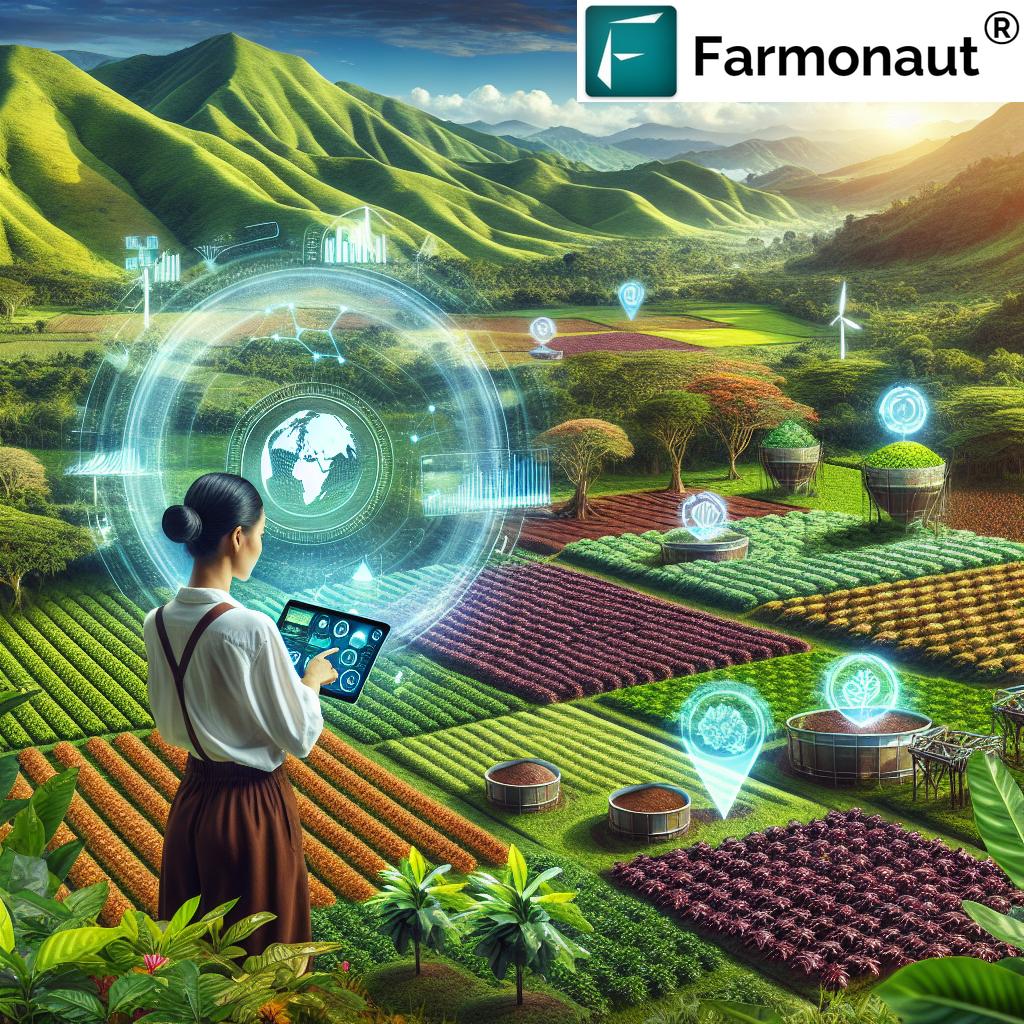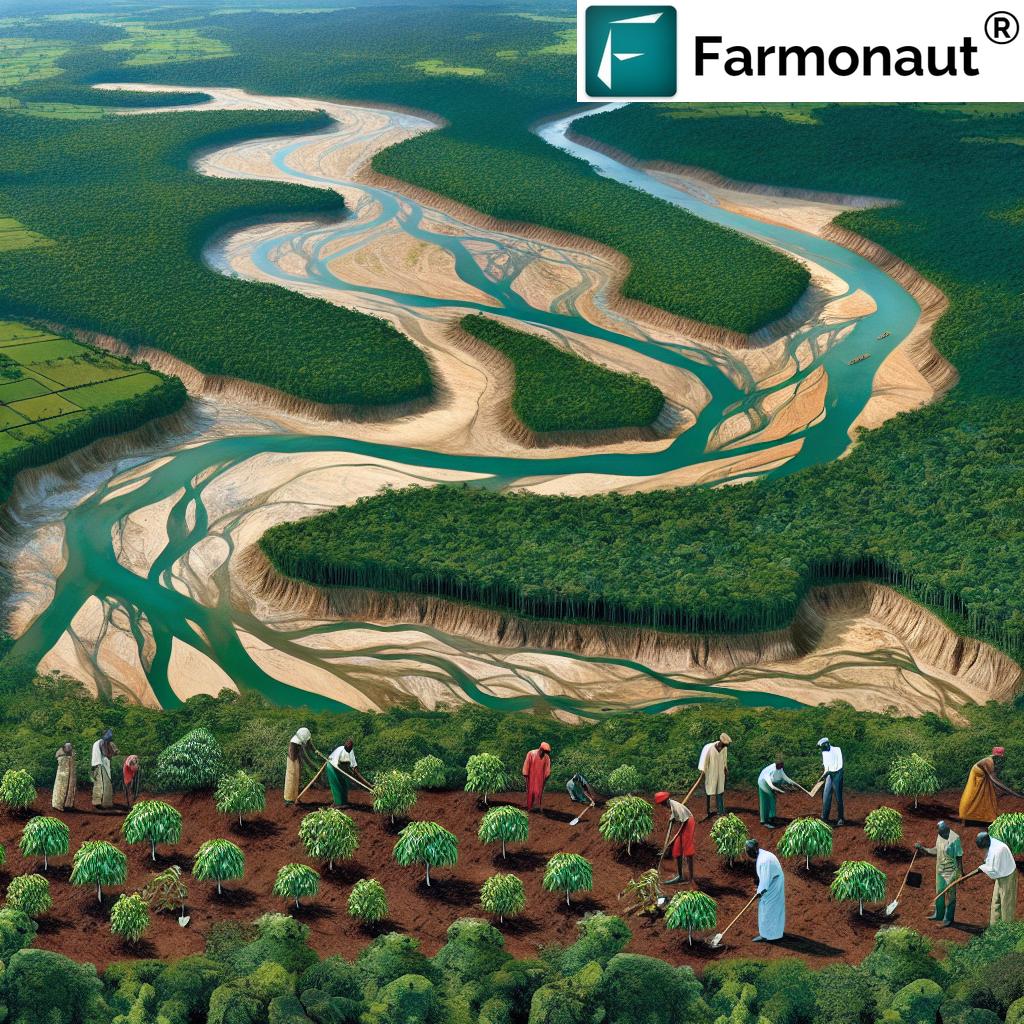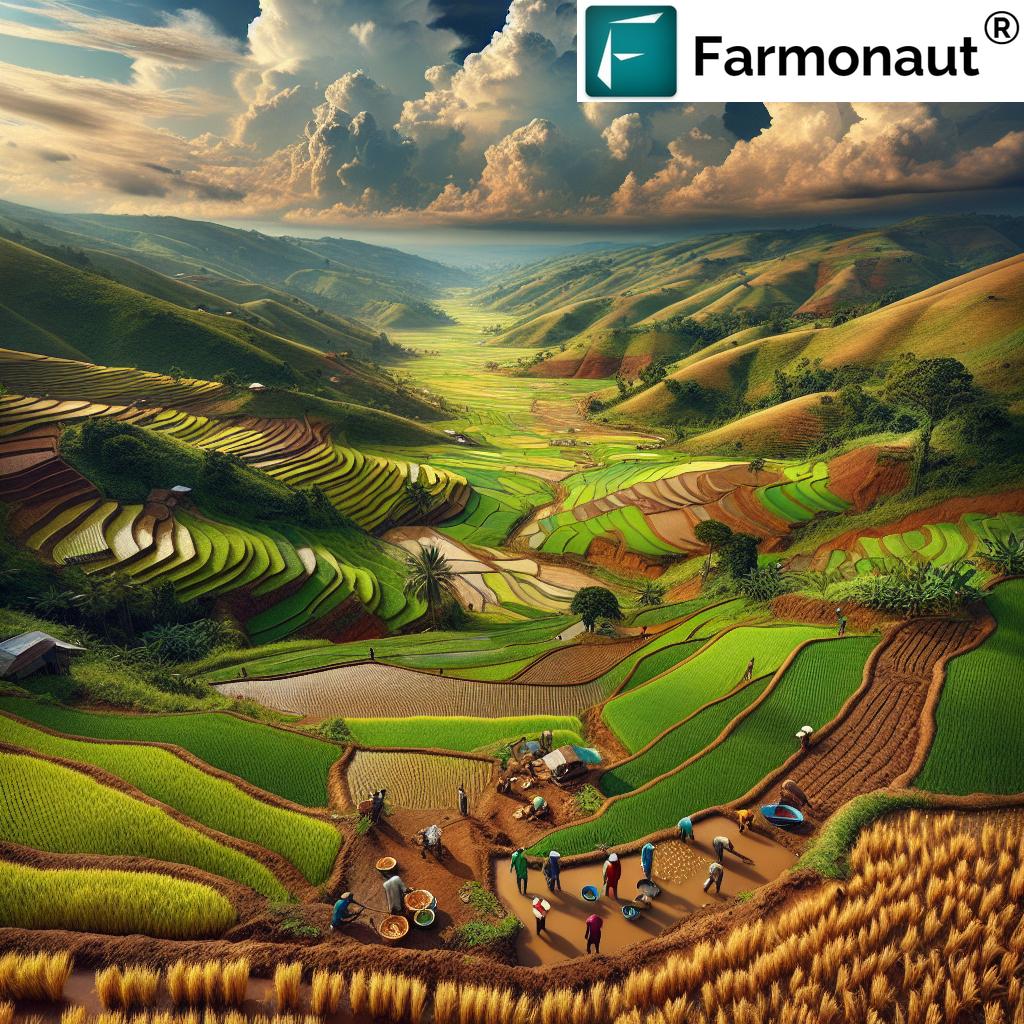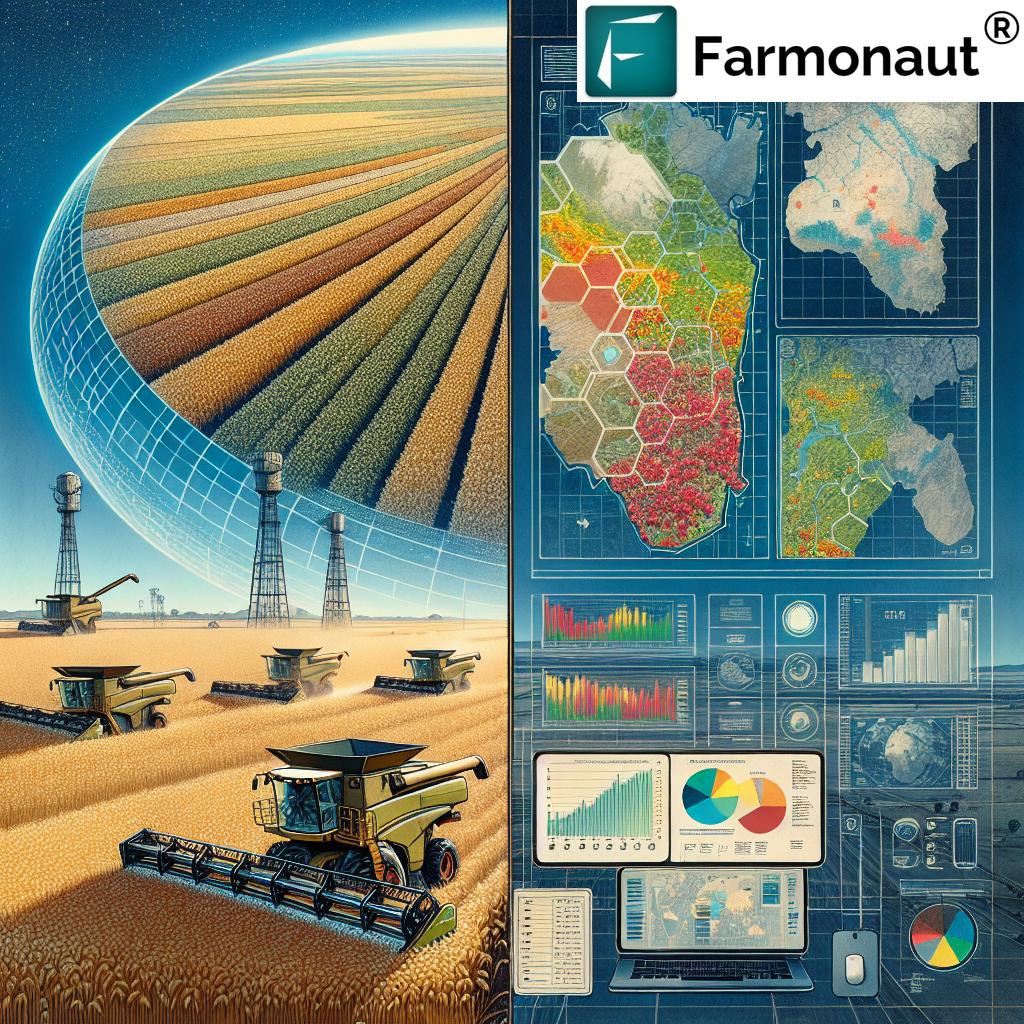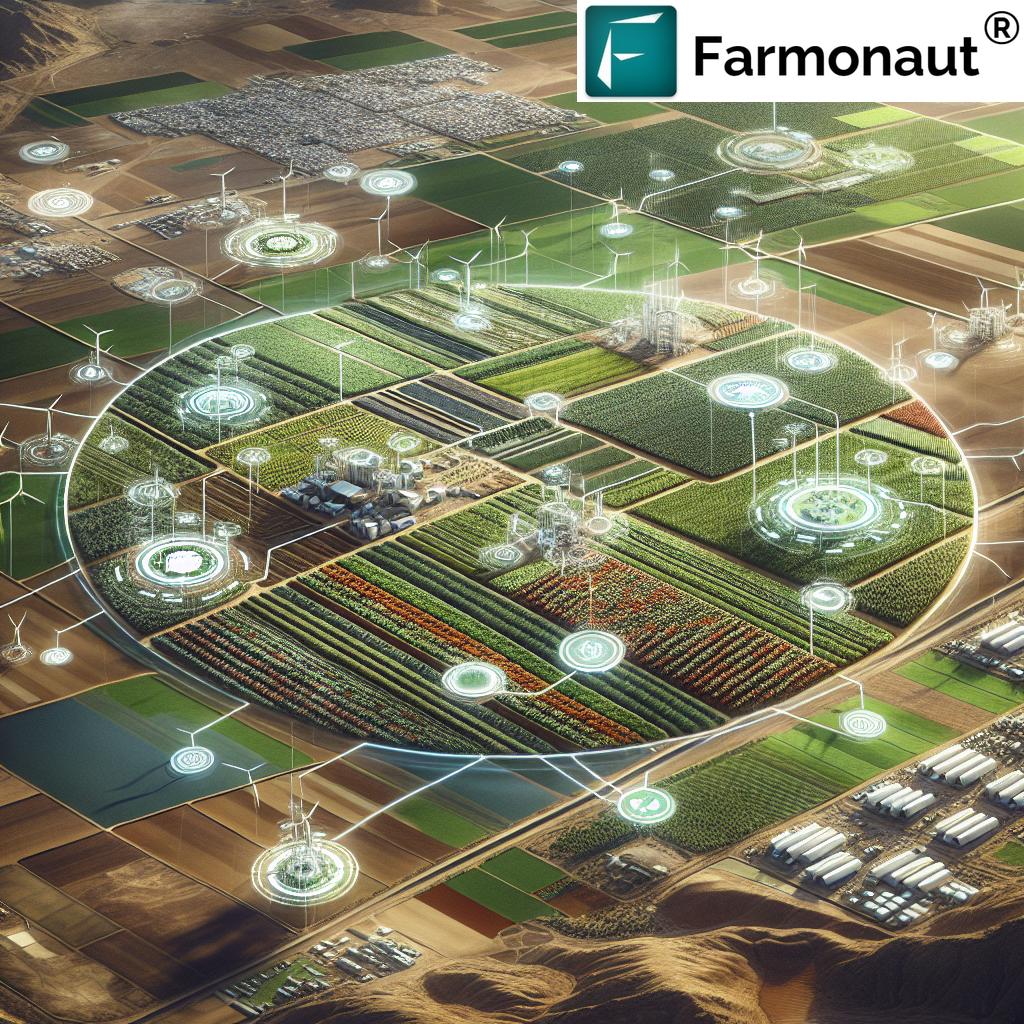Agriculture Côte d’Ivoire: 2025 Innovations & Challenges
Côte d’Ivoire’s Agricultural Ambitions
“By 2025, Côte d’Ivoire aims to increase climate-smart cocoa production by 30% using advanced agricultural technologies.”
Introduction: Agriculture Côte d’Ivoire in 2025
The nation of Côte d’Ivoire—hailed as West Africa’s economic powerhouse—is once again thrust into the spotlight as we step into 2025. Here, agriculture is not just a tradition; it is the backbone of daily life and a major driver of the economy, export revenues, and rural employment. Agriculture Côte d’Ivoire remains pivotal for domestic food security while deftly maintaining its relevance in global commodity markets, especially for its iconic cocoa crop. In this comprehensive article, we explore, analyze, and explain how côte d’ivoire’s agriculture sector is being reshaped by innovations, climate-driven challenges, and an agility that will determine its prospects throughout 2025 and beyond.
Current Agricultural Profile of Côte d’Ivoire
Agriculture Côte d’Ivoire employs over 40% of the national population, contributing approximately 20% to Ivorian GDP. The country continues its legacy as a world leading producer and exporter of cocoa—the very lynchpin of its agricultural & economic fortunes.
Yet, the sector goes far beyond just cocoa. Major crops include coffee, rubber, palm oil, cashew nuts, yams, cassava, and plantains. These crops are critical for both export earnings and food security. Smallholder farmers, often working on fragmented plots using traditional methods, dominate production. However, the winds of change are sweeping through these farmlands, ushering in digitization, climate-smart practices, and much-needed modernization.
- Agriculture Côte d’Ivoire = 40%+ employment, 20%+ GDP
- Key crops = Cocoa, coffee, rubber, cashew nuts, palm oil, yams, cassava, plantains
- Main features: Smallholder dominance, traditional methods, rising digital & climate-smart innovations
Key Crops, Economic Importance & Export Markets
Below we explore the major crops anchoring côte d’ivoire’s agroeconomic landscape, their ongoing importance, and the critical role they play in both domestic food security and export revenues.
Cocoa: Global Dominance and Economic Backbone
Côte d’Ivoire is universally recognized as the world’s leading producer and exporter of cocoa, accounting for nearly 40% of global supply. This single crop is responsible for almost 40% of the country’s export earnings, making the nation critical to the international chocolate supply chain. Dependence on cocoa prices—which remain notoriously volatile—spurs the need for diversification and resilience strategies.
Emerging innovations such as climate-smart practices and carbon farming are increasingly vital in Côte d’Ivoire’s cocoa landscapes.
Cashew Nuts, Palm Oil & Rubber: Alternative Engines for Export Growth
While cocoa remains the lynchpin, recent years have witnessed cashew nuts and palm oil rise as alternative export crops with considerable potential. Government and local organizations have intensified efforts to boost these sectors through improved processing techniques, better seed varieties, and access to expanding international markets.
Palm oil innovation, driven by satellite monitoring and AI analysis, is reducing environmental impact while boosting productivity.
Yams, Cassava & Plantains: Food Security and Local Livelihood
For the nation’s food security, yams, cassava, and plantains are central. Efforts to intensify yields, expand the use of better seed varieties and fertilizers, and reduce post-harvest losses are essential to improving domestic food self-sufficiency and reducing expensive food imports.
Yams, cassava, and plantains raise key questions on market access and technological adoption for food crops in 2025.
2025 Challenges for Agriculture Côte d’Ivoire
Despite its significance, the agricultural sector in Côte d’Ivoire faces numerous systemic challenges that imperil its growth and sustainability:
- Climate Change & Irregular Rainfall Patterns: Unpredictable weather threatens planting cycles, water availability, and yields.
- Soil Degradation: Long-term monoculture (especially of cocoa) has reduced soil fertility and led to widespread nutrient depletion.
- Infrastructure Deficits: Poor rural roads, inadequate market and storage facilities, and underdeveloped supply chain logistics increase post-harvest losses and limit farmer incomes.
- Land Tenure Issues: Unclear property rights discourage investments, while disputes over land limit the sector’s ability to modernize.
- Access to Finance: Many farmers, especially smallholders, lack adequate credit and insurance options to invest in technology or buffer against shocks.
- Fragmented Plots & Traditional Methods: Most Ivorian farmers work on small, fragmented plots using labor-intensive and traditional farming practices.
- Pests and Disease Management: Outbreaks continue to reduce yields and increase costs due to limited access to modern pest control solutions.
AgriTech innovations driving export diversification are increasingly relevant for Côte d’Ivoire’s cashew, palm oil, and rubber sectors in 2025.
Innovations Shaping Côte d’Ivoire’s Agroeconomic Future
To reduce sectoral vulnerabilities and unlock the potential of agriculture c么te d’ivoire, innovations are being deployed across multiple levels.
Climate-Smart Agriculture (CSA) Practices
- Agroforestry: Mixing trees with cocoa or food crops enhances carbon sequestration, reduces soil degradation, and shelters biodiversity.
- Water Management: Drip irrigation, water reservoirs, and improved water-use techniques ensure stable yields, mitigating the impact of irregular rainfall patterns.
- Crop Diversification: Integrating cashew, palm, rubber, and food staples into farm portfolios reduces overdependence on cocoa prices and offers resilience to market shocks.
- Improved Seed Varieties: Introduction of drought-resistant, pest-tolerant seeds for cocoa, cashew, and food crops helps boost productivity and adapts to climate change.
Government and organizations continue to intensify efforts in 2025 through climate financing and farmer field schools that teach CSA methods to tens of thousands of producers.
Digital Agriculture & Technology Adoption
- Mobile Technology Platforms: Digital apps connect farmers to market prices, weather forecasts, input supply chains, and real-time agricultural advisory. This access to data informs better farm management decisions.
- Remote Sensing & Satellite Monitoring: Satellites provide multispectral data to monitor soil moisture, crop health (e.g., NDVI imagery), and land use.
- AI-Driven Advisory & Traceability: Tools powered by AI, like those offered by Farmonaut, deliver real-time insights for precision farming and supply chain transparency.
- Modern Storage & Processing: Enhanced post-harvest storage and decentralized food processing reduce losses, add value, and connect more farmers to export markets.
Digital solutions and AI-driven monitoring empower farmers, government, and exporters in Côte d’Ivoire for smarter, more resilient agriculture.
Infrastructure Investments and Market Access
- Roads, Silos & Processing Plants: Ongoing investments in rural roads and food storage infrastructure directly reduce post-harvest losses and raise farmer incomes by improving market access.
- Farmer Cooperatives: These organizations offer collective bargaining, support timely access to inputs and credit, and foster peer learning about modern agronomic techniques.
With such innovations, the sector is navigating its challenges and positioning itself as a resilient, sustainable, and tech-driven powerhouse for years to come.
Launch Farmonaut’s digital tools via web, Android, or iOS app to monitor crop health with satellite data, AI insights, blockchain traceability, and resource management for agricultural operations in Côte d’Ivoire.
Comparative Overview Table of Key Crops, Challenges, and Technological Innovations (2025)
The table below provides a concise yet comprehensive comparison of Côte d’Ivoire’s leading crops in 2025, their principal challenges, the innovations deployed, and the expected sustainability impact—critically relevant for food security, export competitiveness, and climate resilience.
| Key Crop | Estimated 2025 Production (Metric Tons) | Major Challenges | Innovative Solutions Deployed | Expected Impact on Sustainability |
|---|---|---|---|---|
| Cocoa | 2,300,000+ | Climate change, soil degradation, volatile prices, pests |
Climate-smart agriculture (CSA), drought/pest-resistant seeds, carbon monitoring, digital traceability, satellite imagery |
Enhanced resilience to weather, traceable supply chain, reduced carbon footprint, higher and more stable yields |
| Cashew Nuts | 1,000,000+ | Processing limitations, market volatility, droughts |
Improved processing techniques, better market access, AI-powered crop monitoring, cooperative strengthening |
Increased farmer incomes, reduced post-harvest losses, expanded export markets |
| Palm Oil | 600,000+ | Deforestation, climate, infrastructure deficits |
AI-driven land management, satellite monitoring, sustainable certification schemes, improved rural infrastructure |
Reduced environmental impact, higher traceability, boosted sustainability compliance |
| Rubber | 900,000+ | Pest outbreaks, land conflicts, fluctuating global demand | Satellite-based land monitoring, AI pest/disease alerts, blockchain supply chain management | More predictable yields, reduced conflict, improved stakeholder transparency |
| Yams & Cassava | Yams: 6,500,000+ Cassava: 6,500,000+ |
Low yields, pest pressure, limited market/storage access |
Distribution of improved seeds, mobile market price apps, precision fertilizer management, village-level storage infrastructure |
Enhanced food security, reduced imports, increased rural incomes |
How Farmonaut Empowers Digital & Climate-Smart Agriculture in Côte d’Ivoire
Advanced technology is no longer a distant dream for Ivorian farmers—it is a practical necessity, and satellite intelligence is at the heart of this transformation.
We at Farmonaut provide advanced satellite-driven solutions and data tools that help overcome key challenges in agriculture côte d’ivoire:
- Real-time Monitoring: Farmonaut’s platform delivers actionable crop health information using NDVI and multispectral satellite imagery. This helps farmers identify pest outbreaks, drought stress, or yield variability across fragmented plots.
- AI-Based Advisory: Our Jeevn AI system processes climate, weather, and satellite data to provide personalized insights.
-
Blockchain Traceability: Enhanced supply chain transparency mitigates fraud and builds trust in Ivorian agricultural exports.
Learn more about our Traceability Product here
. -
Resource Management for Cooperatives & Businesses: Fleet & resource management tools help optimize logistics for harvests and machinery.
Discover Farmonaut Fleet Management
. -
Environmental Impact Tracking: We help monitor carbon footprint and compliance for sustainable agriculture.
Explore Carbon Footprinting Solution
. -
Insurance & Credit Verification: Financial institutions can use our satellite verification platform for crop loans & insurance, reducing fraud and improving rural access to financing.
Read about Satellite Crop Loan & Insurance Verification
. -
API for Integration: Developers in Côte d’Ivoire can access data and integrate satellite insights with their platforms via the
Farmonaut API & Developer Docs
.
We empower local farmers, agribusinesses, and organizations to modernize their practices, reduce environmental impact, and enhance food security—all while boosting Côte d’Ivoire’s competitive edge.
Jeevn AI, integrated with Farmonaut satellite data, gives real-time, actionable recommendations—enabling precise agriculture management for all users.
Farmonaut Subscriptions for Côte d’Ivoire in 2025
Choose a Farmonaut plan that suits your needs—whether you are an individual farmer, agribusiness, or a government body—so your agriculture management matches the vision for a sustainable Côte d’Ivoire.
Scalable Solutions for All:
- Smallholder plots to large, multi-crop plantations
- Business resource optimization for supply chains
- Government-level policy, compliance and food security monitoring
For managing forestry, large-scale administration, and digital advisory for plantation agriculture in Côte d’Ivoire,
learn more about Farmonaut’s Large-Scale Farm Management App
.
Key Benefits in 2025:
- All monitoring and advisory services are remotely accessible via mobile and web
- Affordable and adaptable to fragmented farming environments
- API integration for seamless expansion
- Powerful data—driven by AI and satellite analytics—for better climate and supply chain management
Digital Adoption Among Côte d’Ivoire’s Farmers
“Over 40% of Ivorian farmers are expected to adopt digital solutions for crop monitoring and yield improvement by 2025.”
Outlook: Prospects, Sustainability & Opportunities for Growth
The future of agriculture côte d’ivoire in 2025 and beyond looks both challenging and bright:
- Resilient & Diversified Value Chains: By expanding from a cocoa-centric economy to a diversified portfolio—cashew, palm oil, and rubber—the country aims to stabilize revenues and reduce dependence on volatile prices.
- Climate-Responsive & Digital-First Farming: Intensification of CSA and digital tech leads to stable yields, better land use, and improved resource management.
- Food Security & Domestic Prosperity: Outperforming food import reliance by raising productivity in yams, cassava, and plantains is pivotal. Wider adoption of improved seed varieties, fertilizers, and precise farming techniques is already yielding results.
- Infrastructure as a Growth Engine: Investments in roads, silos, and marketplace digitization reduce losses and provide easier, fairer access to international markets.
- Opportunities for Youth and Women: Enhanced access to credit, new value chains, and digital platforms encourage next-generation farmers.
Innovations and digital transformation, always rooted in local realities, remain central in Côte d’Ivoire’s ascent to agricultural sustainability, global competitiveness, and rural prosperity.
Get Started with Satellite-Driven, Sustainable Farming Today!
We at Farmonaut provide the digital and climate innovations Côte d’Ivoire needs for a transformative and sustainable agricultural future.
FAQ – Agriculture Côte d’Ivoire: 2025 Innovations & Challenges
Q1: What are the main crops of Côte d’Ivoire in 2025?
Côte d’Ivoire’s main crops in 2025 include cocoa (world’s leading producer), cashew nuts, palm oil, rubber, coffee, yams, cassava, and plantains.
Q2: What types of agricultural challenges does Côte d’Ivoire face in 2025?
Key challenges include climate change, irregular rainfall patterns, soil degradation, rural infrastructure deficits, land tenure disputes, lack of access to credit, and traditional low-yield farming methods.
Q3: What are climate-smart agriculture (CSA) practices, and how do they help?
CSA practices include agroforestry, precision irrigation, crop diversification, and use of improved seeds. These boost climate resilience, improve yields, and reduce degrdation, supporting sustainability in Côte d’Ivoire.
Q4: How is digital agriculture shaping the sector’s future?
Digital agriculture in Côte d’Ivoire connects farmers to real-time market prices, weather, and advisory services; delivers satellite and AI-driven insights; and enables digital traceability—empowering decisions and boosting efficiency.
Q5: How does Farmonaut contribute to Côte d’Ivoire’s agriculture?
Farmonaut delivers affordable, satellite-driven agricultural monitoring, AI-based advisory for smart farming, blockchain product traceability, optimization for fleet management, and climate impact tracking—empowering farmers, exporters, and government for growth and sustainability.
Q6: What are some essential technological resources for Ivorian digital agriculture in 2025?
These include Farmonaut’s satellite monitoring web and mobile apps, API for integration, and carbon footprinting solutions.
Conclusion: Toward a Resilient and Sustainable Agricultural Future
As we step deeper into 2025, Côte d’Ivoire stands at the crossroads of tradition and transformation. Agriculture côte d’ivoire remains essential for the country’s economic stability, rural employment, and food sufficiency. The sector faces considerable challenges such as climate-driven stresses, market volatility, and technological gaps—but the nation also embraces unprecedented opportunities thanks to innovations in climate-smart practices, digital agriculture, and satellite-driven monitoring.
Empowering farmers with real-time, affordable intelligence and integrating sustainability—with the help of platforms like Farmonaut—will be key. Through widespread adoption of CSA techniques, improved infrastructure, seed varieties, and digital solutions, Côte d’Ivoire is poised to reduce vulnerabilities, secure food systems, and reaffirm its leadership in global agriculture.
**The future of agriculture Côte d’Ivoire in 2025 relies on the sector’s ability to adapt with agility, foster innovation, and close gaps in infrastructure—taking the nation to new heights of prosperity and sustainable growth.**
Ready to embrace the next era of digital, sustainable agriculture in Côte d’Ivoire?
Try Farmonaut now or integrate via
API—empowering your farm, business, or organization to thrive in 2025 and beyond.







